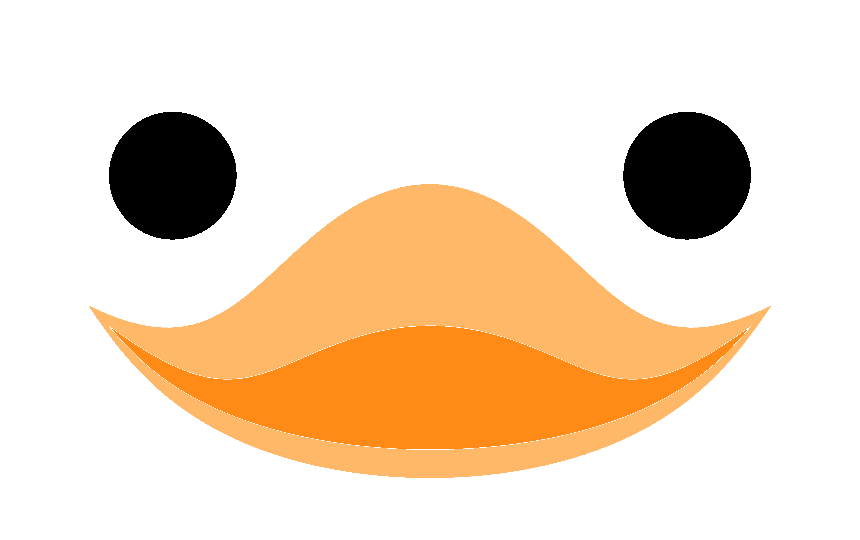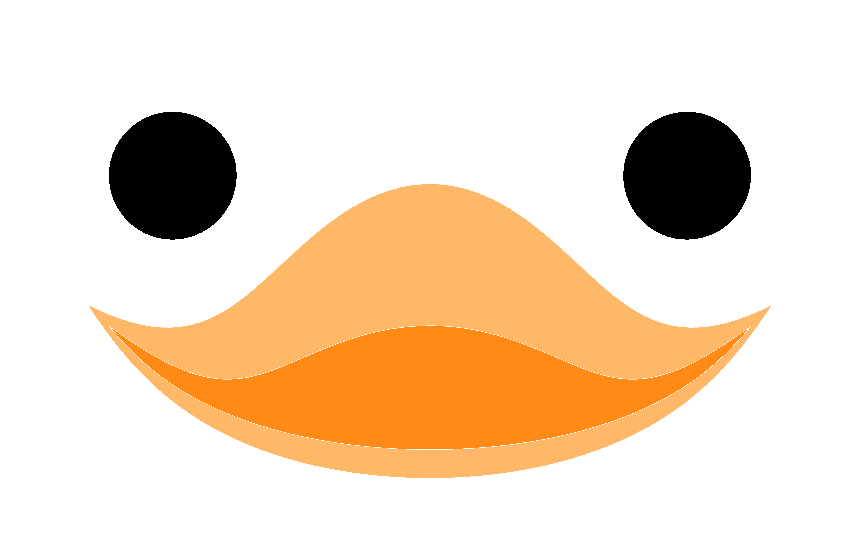Show Options#
VerticesShowOption#
c
Color in {rgb, RGB, str of (hex, name), int}
allowed types: ( str, tuple, list, int)
default: None
alpha
Transparency in range [0, 1].
allowed types: ( float, int)
default: None
data
Name of vertex_data to show. Object must have vertex_data with the same name.
allowed types: ( str,)
default: None
vertex_ids
Show ids of vertices
allowed types: ( bool,)
default: None
element_ids
Show ids of elements
allowed types: ( bool,)
default: None
lighting
Lighting options {‘default’, ‘metallic’, ‘plastic’, ‘shiny’, ‘glossy’, ‘ambient’, ‘off’}
allowed types: ( str,)
default: None
cmap
Colormap for vertex_data plots.
allowed types: ( str,)
default: None
vmin
Minimum value for cmap
allowed types: ( float, int)
default: None
vmax
Maximum value for cmap
allowed types: ( float, int)
default: None
cmap_alpha
Colormap Transparency in range [0, 1].
allowed types: ( float, int)
default: None
cmap_n_colors
Set the number of available colors
allowed types: ( int,)
default: None
scalarbar
Scalarbar describing cmap. At least an empty dict or dict with following items are accepted: {title: str, pos: tuple, title_yoffset: int, font_size: int, nlabels: int, c: str, horizontal: bool, use_alpha: bool, label_format: str}. Setting bool will add a default scalarbar
allowed types: ( bool, dict)
default: None
scalarbar3d
3D scalarbar describing cmap. At least an empty dict or dict with following items are accepted: {title: str, pos: tuple, size: list, title_font: str, title_xoffset: float, title_yoffset: float, title_size: float, title_rotation: float, nlabels: int, label_font: str, label_size: float, label_offset: float, label_rotation: int, label_format: str, draw_box: bool, above_text: str, below_text: str, nan_text: str, categories: list}
allowed types: ( bool, dict)
default: None
arrow_data
Name of vertex_data to plot as arrow. Corresponding data should be at least 2D. If you want more control over arrows, consider creating edges using gus.create.edges.from_data().
allowed types: ( str,)
default: None
arrow_data_scale
Scaling factor for arrow data.
allowed types: ( float, int)
default: None
arrow_data_color
Color for arrow data. Can be either cmap name or color. For cmap, colors are based on the size of the arrows.
allowed types: ( str, tuple, list, int)
default: None
arrow_data_to_origin
Points arrow data to geometric origin. By default, arrows point away from origin. When enabled, arrows are shifted backwards by their own magnitudes. Works in conjunction with arrow_data and arrow_data_scale options.
allowed types: ( bool,)
default: None
axes
Configure a specific axes with options. Expect dict(), but setting True will set a default axes. For full options, see https://vedo.embl.es/autodocs/content/vedo/addons.html#vedo.addons.Axes
allowed types: ( bool, dict)
default: None
r
Radius of vertices in units of pixels.
allowed types: ( float, int)
default: None
labels
Places a label/description str at the place of vertices.
allowed types: ( numpy.ndarray, tuple, list)
default: None
label_options
Label kwargs to be passed during initialization.Valid keywords are: {scale: float, xrot: float, yrot: float, zrot: float, ratio: float, precision: int, italic: bool, font: str, justify: str, c: (str, tuple, list, int), alpha: float}. As further hint, justify takes ‘-’ joined combination of {center, mid, right, left, top, bottom}.
allowed types: ( dict,)
default: None
EdgesShowOption#
c
Color in {rgb, RGB, str of (hex, name), int}
allowed types: ( str, tuple, list, int)
default: None
alpha
Transparency in range [0, 1].
allowed types: ( float, int)
default: None
data
Name of vertex_data to show. Object must have vertex_data with the same name.
allowed types: ( str,)
default: None
vertex_ids
Show ids of vertices
allowed types: ( bool,)
default: None
element_ids
Show ids of elements
allowed types: ( bool,)
default: None
lighting
Lighting options {‘default’, ‘metallic’, ‘plastic’, ‘shiny’, ‘glossy’, ‘ambient’, ‘off’}
allowed types: ( str,)
default: None
cmap
Colormap for vertex_data plots.
allowed types: ( str,)
default: None
vmin
Minimum value for cmap
allowed types: ( float, int)
default: None
vmax
Maximum value for cmap
allowed types: ( float, int)
default: None
cmap_alpha
Colormap Transparency in range [0, 1].
allowed types: ( float, int)
default: None
cmap_n_colors
Set the number of available colors
allowed types: ( int,)
default: None
scalarbar
Scalarbar describing cmap. At least an empty dict or dict with following items are accepted: {title: str, pos: tuple, title_yoffset: int, font_size: int, nlabels: int, c: str, horizontal: bool, use_alpha: bool, label_format: str}. Setting bool will add a default scalarbar
allowed types: ( bool, dict)
default: None
scalarbar3d
3D scalarbar describing cmap. At least an empty dict or dict with following items are accepted: {title: str, pos: tuple, size: list, title_font: str, title_xoffset: float, title_yoffset: float, title_size: float, title_rotation: float, nlabels: int, label_font: str, label_size: float, label_offset: float, label_rotation: int, label_format: str, draw_box: bool, above_text: str, below_text: str, nan_text: str, categories: list}
allowed types: ( bool, dict)
default: None
arrow_data
Name of vertex_data to plot as arrow. Corresponding data should be at least 2D. If you want more control over arrows, consider creating edges using gus.create.edges.from_data().
allowed types: ( str,)
default: None
arrow_data_scale
Scaling factor for arrow data.
allowed types: ( float, int)
default: None
arrow_data_color
Color for arrow data. Can be either cmap name or color. For cmap, colors are based on the size of the arrows.
allowed types: ( str, tuple, list, int)
default: None
arrow_data_to_origin
Points arrow data to geometric origin. By default, arrows point away from origin. When enabled, arrows are shifted backwards by their own magnitudes. Works in conjunction with arrow_data and arrow_data_scale options.
allowed types: ( bool,)
default: None
axes
Configure a specific axes with options. Expect dict(), but setting True will set a default axes. For full options, see https://vedo.embl.es/autodocs/content/vedo/addons.html#vedo.addons.Axes
allowed types: ( bool, dict)
default: None
lw
Width of edges (lines) in pixel units.
allowed types: ( float, int)
default: None
as_arrows
Show edges as arrows.
allowed types: ( bool,)
default: None
head_radius
Radius of arrow head. Applicable if as_arrows is True
allowed types: ( float, int)
default: None
head_length
Length of arrow head. Applicable if as_arrows is True
allowed types: ( float, int)
default: None
shaft_radius
Radius of arrow shaft. Applicable if as_arrows is True
allowed types: ( float, int)
default: None
FacesShowOption#
c
Color in {rgb, RGB, str of (hex, name), int}
allowed types: ( str, tuple, list, int)
default: None
alpha
Transparency in range [0, 1].
allowed types: ( float, int)
default: None
data
Name of vertex_data to show. Object must have vertex_data with the same name.
allowed types: ( str,)
default: None
vertex_ids
Show ids of vertices
allowed types: ( bool,)
default: None
element_ids
Show ids of elements
allowed types: ( bool,)
default: None
lighting
Lighting options {‘default’, ‘metallic’, ‘plastic’, ‘shiny’, ‘glossy’, ‘ambient’, ‘off’}
allowed types: ( str,)
default: None
cmap
Colormap for vertex_data plots.
allowed types: ( str,)
default: None
vmin
Minimum value for cmap
allowed types: ( float, int)
default: None
vmax
Maximum value for cmap
allowed types: ( float, int)
default: None
cmap_alpha
Colormap Transparency in range [0, 1].
allowed types: ( float, int)
default: None
cmap_n_colors
Set the number of available colors
allowed types: ( int,)
default: None
scalarbar
Scalarbar describing cmap. At least an empty dict or dict with following items are accepted: {title: str, pos: tuple, title_yoffset: int, font_size: int, nlabels: int, c: str, horizontal: bool, use_alpha: bool, label_format: str}. Setting bool will add a default scalarbar
allowed types: ( bool, dict)
default: None
scalarbar3d
3D scalarbar describing cmap. At least an empty dict or dict with following items are accepted: {title: str, pos: tuple, size: list, title_font: str, title_xoffset: float, title_yoffset: float, title_size: float, title_rotation: float, nlabels: int, label_font: str, label_size: float, label_offset: float, label_rotation: int, label_format: str, draw_box: bool, above_text: str, below_text: str, nan_text: str, categories: list}
allowed types: ( bool, dict)
default: None
arrow_data
Name of vertex_data to plot as arrow. Corresponding data should be at least 2D. If you want more control over arrows, consider creating edges using gus.create.edges.from_data().
allowed types: ( str,)
default: None
arrow_data_scale
Scaling factor for arrow data.
allowed types: ( float, int)
default: None
arrow_data_color
Color for arrow data. Can be either cmap name or color. For cmap, colors are based on the size of the arrows.
allowed types: ( str, tuple, list, int)
default: None
arrow_data_to_origin
Points arrow data to geometric origin. By default, arrows point away from origin. When enabled, arrows are shifted backwards by their own magnitudes. Works in conjunction with arrow_data and arrow_data_scale options.
allowed types: ( bool,)
default: None
axes
Configure a specific axes with options. Expect dict(), but setting True will set a default axes. For full options, see https://vedo.embl.es/autodocs/content/vedo/addons.html#vedo.addons.Axes
allowed types: ( bool, dict)
default: None
lw
Width of edges (lines) in pixel units.
allowed types: ( int,)
default: None
lc
Color of edges (lines).
allowed types: ( int, str, tuple, list)
default: None
texture
Texture of faces in array, vedo.Picture/Image, vtk.vtkTexture, or path to an image.
allowed types: ( numpy.ndarray, tuple, list, str, vedo.image.Image, vtkmodules.vtkRenderingCore.vtkTexture)
default: None
VolumesShowOption#
c
Color in {rgb, RGB, str of (hex, name), int}
allowed types: ( str, tuple, list, int)
default: None
alpha
Transparency in range [0, 1].
allowed types: ( float, int)
default: None
data
Name of vertex_data to show. Object must have vertex_data with the same name.
allowed types: ( str,)
default: None
vertex_ids
Show ids of vertices
allowed types: ( bool,)
default: None
element_ids
Show ids of elements
allowed types: ( bool,)
default: None
lighting
Lighting options {‘default’, ‘metallic’, ‘plastic’, ‘shiny’, ‘glossy’, ‘ambient’, ‘off’}
allowed types: ( str,)
default: None
cmap
Colormap for vertex_data plots.
allowed types: ( str,)
default: None
vmin
Minimum value for cmap
allowed types: ( float, int)
default: None
vmax
Maximum value for cmap
allowed types: ( float, int)
default: None
cmap_alpha
Colormap Transparency in range [0, 1].
allowed types: ( float, int)
default: None
cmap_n_colors
Set the number of available colors
allowed types: ( int,)
default: None
scalarbar
Scalarbar describing cmap. At least an empty dict or dict with following items are accepted: {title: str, pos: tuple, title_yoffset: int, font_size: int, nlabels: int, c: str, horizontal: bool, use_alpha: bool, label_format: str}. Setting bool will add a default scalarbar
allowed types: ( bool, dict)
default: None
scalarbar3d
3D scalarbar describing cmap. At least an empty dict or dict with following items are accepted: {title: str, pos: tuple, size: list, title_font: str, title_xoffset: float, title_yoffset: float, title_size: float, title_rotation: float, nlabels: int, label_font: str, label_size: float, label_offset: float, label_rotation: int, label_format: str, draw_box: bool, above_text: str, below_text: str, nan_text: str, categories: list}
allowed types: ( bool, dict)
default: None
arrow_data
Name of vertex_data to plot as arrow. Corresponding data should be at least 2D. If you want more control over arrows, consider creating edges using gus.create.edges.from_data().
allowed types: ( str,)
default: None
arrow_data_scale
Scaling factor for arrow data.
allowed types: ( float, int)
default: None
arrow_data_color
Color for arrow data. Can be either cmap name or color. For cmap, colors are based on the size of the arrows.
allowed types: ( str, tuple, list, int)
default: None
arrow_data_to_origin
Points arrow data to geometric origin. By default, arrows point away from origin. When enabled, arrows are shifted backwards by their own magnitudes. Works in conjunction with arrow_data and arrow_data_scale options.
allowed types: ( bool,)
default: None
axes
Configure a specific axes with options. Expect dict(), but setting True will set a default axes. For full options, see https://vedo.embl.es/autodocs/content/vedo/addons.html#vedo.addons.Axes
allowed types: ( bool, dict)
default: None
lw
Width of edges (lines) in pixel units.
allowed types: ( int,)
default: None
lc
Color of edges (lines).
allowed types: ( int, str, tuple, list)
default: None

